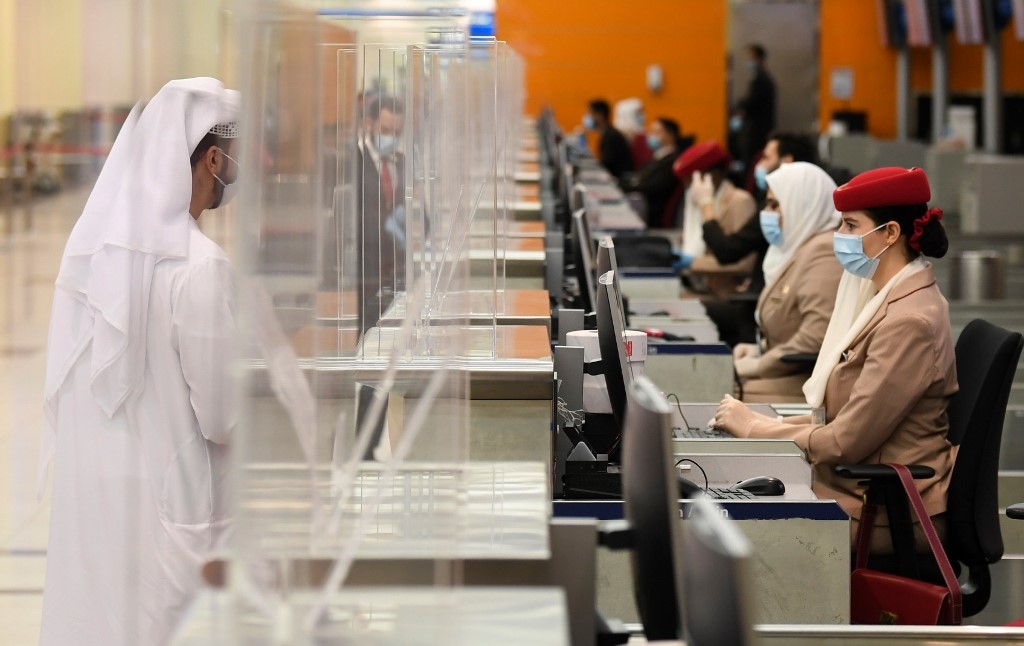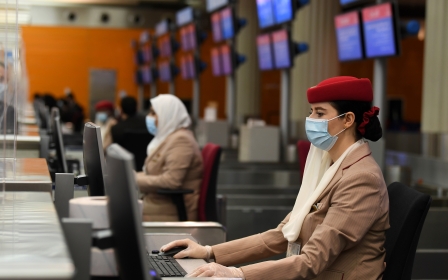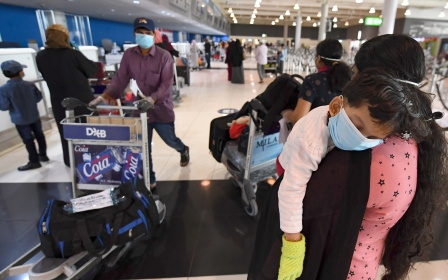Coronavirus: UAE relaxes travel restrictions for residents and nationals

The United Arab Emirates is lifting its coronavirus travel ban on residents and nationals, allowing general travel abroad for the first time in three months.
Both citizens and residents of the UAE will now be permitted to travel abroad as long as government-mandated precautions are taken, the state news agency reported on Friday.
Before being allowed to fly, passengers will be required to test negative for Covid-19 within 48 hours of their travel date, and travel will be restricted to only those with insurance, according to the National, a UAE-based newspaper.
Travelers returning to the UAE will be legally required to undergo a 14-day self quarantine.
Amid concerns over the spread of the novel coronavirus, the UAE grounded all inbound and outbound passenger flights in March, allowing only cargo and emergency evacuation flights.
New MEE newsletter: Jerusalem Dispatch
Sign up to get the latest insights and analysis on Israel-Palestine, alongside Turkey Unpacked and other MEE newsletters
The UAE has seen a decrease in cases in recent weeks, allowing the government to continue lifting restrictions.
With about 49,069 confirmed cases and 316 Covid-19-related deaths, the UAE has been one of the least-hit countries in the Gulf. On 2 June, the World Health Organisation (WHO) reported that the UAE had recorded only 402 new cases, well below the tallies of neighbouring countries.
While the virus has not hit the UAE as hard as some of its Gulf neighbours, the economic impact from coronavirus-related closures and restrictions has been severe.
Dubai's chamber of commerce warned in May that 70 percent of the city's businesses could go under by November because of financial problems brought about by the pandemic.
With many of the coronavirus-related restrictions focused on travel, airlines have been hit particularly hard.
In June, Emirates, one of the world's biggest long-haul airlines, said it was planning to cut thousands of jobs to help manage the cash crunch caused by the pandemic. Layoffs included 600 pilots and almost 7,000 cabin crew.
The carrier predicted that it would take at least 18 months for travel demand to return to "a semblance of normality". It is not clear if the recent lifting of restrictions is in line with those predictions.
Middle East Eye delivers independent and unrivalled coverage and analysis of the Middle East, North Africa and beyond. To learn more about republishing this content and the associated fees, please fill out this form. More about MEE can be found here.





